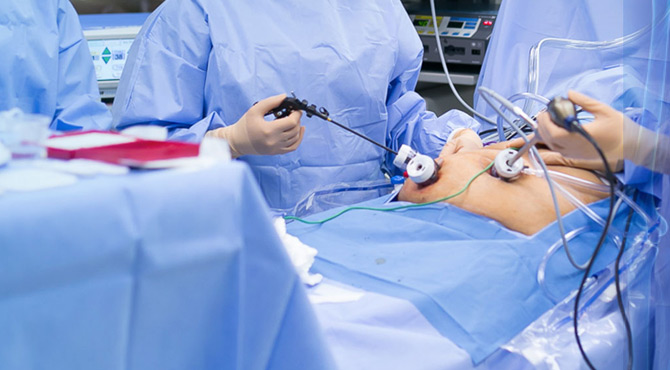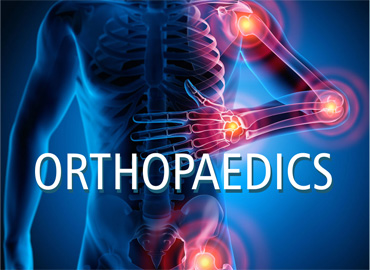Orthopedic
Orthopedic Doctor in Pimpri Chinchwad (PCMC)
Understanding Orthopedics:
When we think about our bodies, we often take for granted the intricate system of bones, joints, muscles, and ligaments that allow us to move, work, and enjoy life. However, when something goes wrong within this system—whether due to injury, disease, or age-related wear and tear—the impact on our quality of life can be significant. This is where the field of orthopedics comes in. Orthopedics is a branch of medicine focused on the diagnosis, treatment, and prevention of disorders of the musculoskeletal system. This article will help you understand the basics of orthopedics, common conditions treated by orthopedic specialists, and what to expect when you visit an orthopedic doctor.
What is Orthopedics?
Orthopedics (or orthopaedics, as it is spelled in some countries) is the medical specialty concerned with the care of the musculoskeletal system, which includes bones, joints, muscles, tendons, ligaments, and nerves. The word “orthopedics” comes from the Greek words “ortho,” meaning straight, and “paideia,” meaning rearing of children. Originally, the field focused on correcting deformities in children, but it has since expanded to address a wide range of issues affecting patients of all ages.
Orthopedic specialists, known as orthopedic surgeons or orthopedists, are trained to diagnose and treat a variety of conditions, from acute injuries like fractures and dislocations to chronic conditions like arthritis and back pain. They use both surgical and non-surgical methods to restore function and relieve pain, allowing patients to return to their normal activities.
Common Orthopedic Conditions
Orthopedics covers a broad spectrum of conditions, some of the most common include:
Arthritis: Arthritis is an inflammation of the joints that can cause pain, swelling, stiffness, and reduced range of motion. The two most common types are osteoarthritis, which is related to aging and wear and tear, and rheumatoid arthritis, an autoimmune condition.
Fractures: A fracture is a break in the bone, which can occur due to trauma (like a fall or accident) or because of conditions that weaken the bones, such as osteoporosis. Depending on the severity and location of the fracture, treatment may involve immobilization with a cast or splint, or surgery to realign the bones.
Sprains and Strains: Sprains occur when ligaments (the tissues that connect bones to other bones) are stretched or torn, usually in the ankles, knees, or wrists. Strains, on the other hand, involve muscles or tendons (the tissues that connect muscles to bones) and often occur in the back, hamstrings, or shoulders.
Back Pain: Back pain is one of the most common reasons people visit an orthopedic doctor. It can result from a variety of factors, including muscle strain, disc herniation, spinal stenosis, or degenerative disc disease. Treatment may involve physical therapy, medication, or, in severe cases, surgery.
Tendonitis: Tendonitis is inflammation of a tendon, often caused by repetitive motion or overuse. It commonly affects the shoulders, elbows, wrists, and knees, leading to pain and restricted movement.
Bursitis: Bursitis is the inflammation of the small, fluid-filled sacs (bursae) that cushion the bones, tendons, and muscles near your joints. It typically occurs in the shoulders, elbows, hips, or knees, and is often caused by repetitive movements or pressure.
Carpal Tunnel Syndrome: This condition is caused by compression of the median nerve as it travels through the wrist’s carpal tunnel. It leads to pain, numbness, and tingling in the hand and arm, and is often related to repetitive hand movements or underlying medical conditions like diabetes or rheumatoid arthritis.
When to See an Orthopedic Specialist
If you experience persistent pain, swelling, or limited mobility in your joints, muscles, or bones, it may be time to consult an orthopedic specialist. While some conditions can be managed with rest, ice, and over-the-counter pain relievers, others require professional diagnosis and treatment. Here are some signs that you should seek orthopedic care:
Chronic pain: If pain persists for more than a few weeks, especially if it’s affecting your daily activities or sleep, it’s important to get it checked out.
Limited mobility: If you’re having trouble moving a joint, such as your knee or shoulder, or if you’re experiencing stiffness, an orthopedic evaluation can help determine the cause and appropriate treatment.
Joint deformity: If you notice a visible deformity in a joint, such as a misaligned bone or a joint that doesn’t move properly, you should seek immediate care.
Injury: After a traumatic injury, such as a fall or accident, it’s important to see an orthopedic specialist, especially if you suspect a fracture, dislocation, or severe sprain.
Swelling: Persistent swelling, especially if it’s accompanied by redness or warmth, could indicate an underlying issue that needs attention.



